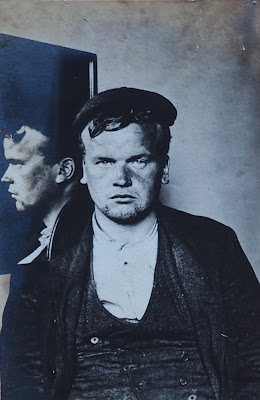"Constable Murray of the Kincardineshire Police, stationed at Portlethen, received a complaint on Thursday last from a salmon fisher at Findon to the effect that a "gentleman" representing himself as an engineer and a native of Shetland desired board and lodgings as he had a week to spare before his ship sailed to carry him home. He got the lodgings but abruptly disappeared on the 14th and did not pay his bill. The constable instituted enquiries in the course of which he landed at Newtonhill Railway Station on Friday evening, a few minutes before the departure of the last train for the south. While waiting, he observed a man, who answered the description of the party he was in search of, making inquiry of the railway officials regarding a train to take him to Dundee. The constable, after some questioning, took him into custody and conveyed him to Stonehaven, where he gave the name of Halford Percy Mills, 21 years of age, and stated that he was a native of London".
If having the audacity to impersonate a Shetlander wasn't bad enough, it transpires from the newspaper report that Halford was also wanted for a string of other offences,
"...he is at present wanted by the Aberdeen police for an extensive fraud committed in October last, and also in England by the Hants and Birkenhead police for fraud and felony. He is likewise believed to be identical with a board and lodgings imposter and thief at present wanted by the Forfar, Dundee, Perth and Coatbridge police. Mills was taken to Aberdeen on Saturday by the Aberdeen police. He is wanted in the city in connection with a charge of fraud by obtaining a suit of clothes under false pretences".
Unfortunately it has not been possible to trace where or when Halford was tried for his crimes. However, given his unusual first name, it was possible to locate him on the 1891 and 1881 census returns when he was aged 13 and 3 respectively. In 1891 he had five siblings, while both census returns show that the family was living at 31 Cambridge Place in Paddington. His father, also named Halford and originally from Smarden in Kent, was an undertaker, while his mother was originally from Barking, East London.










